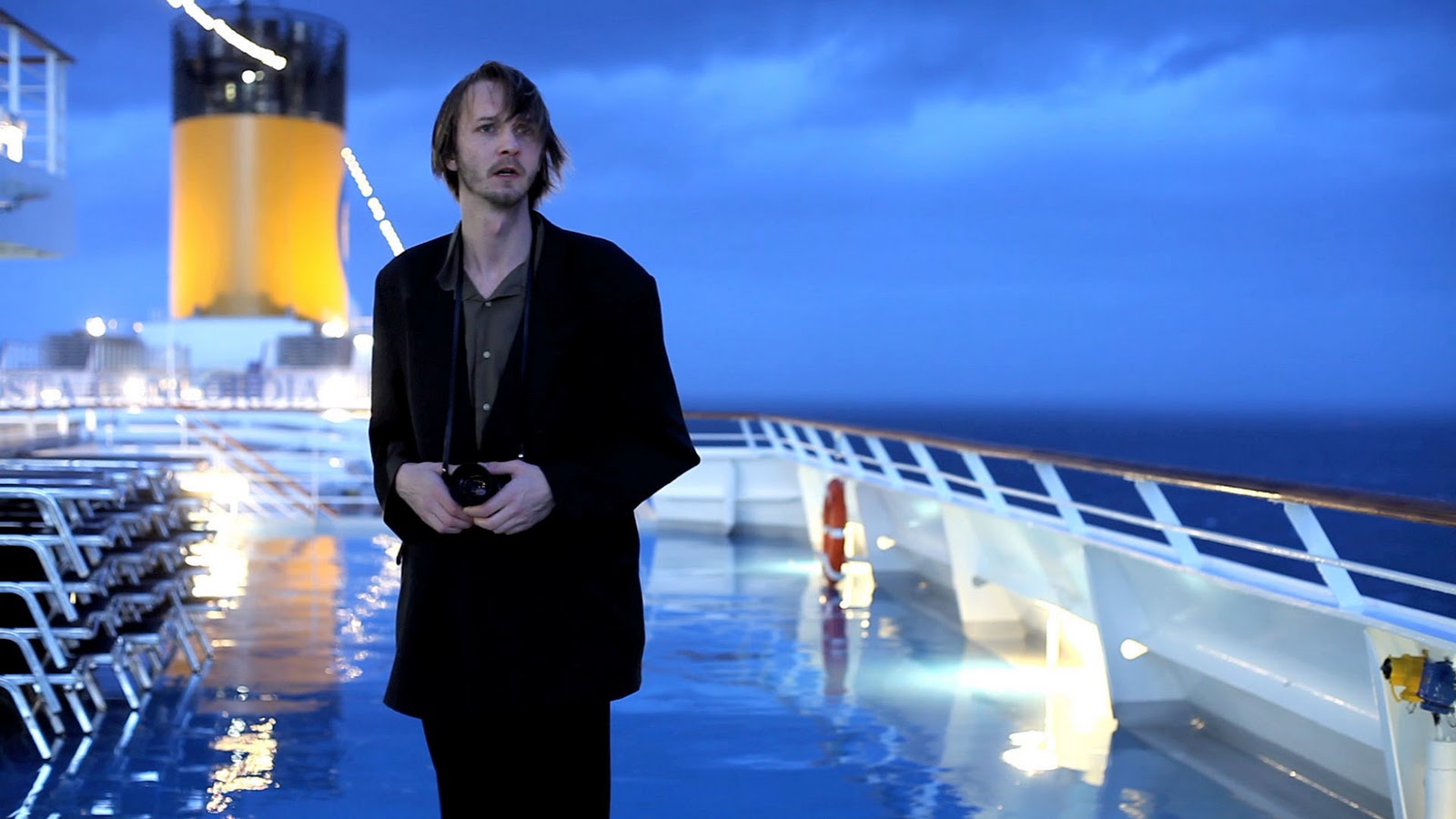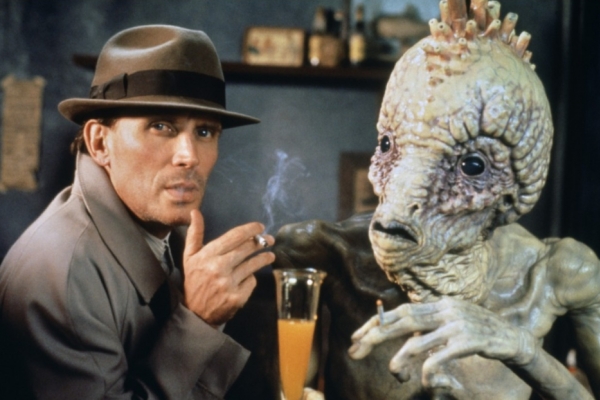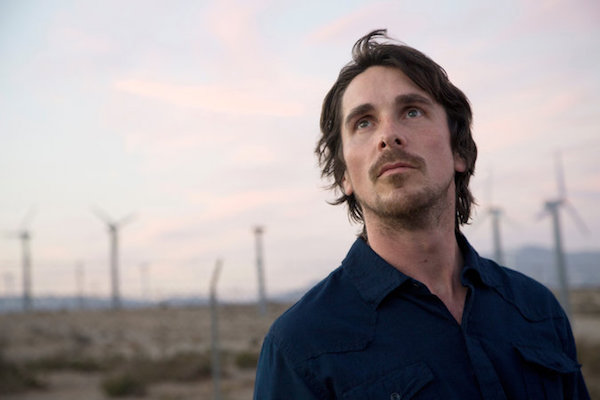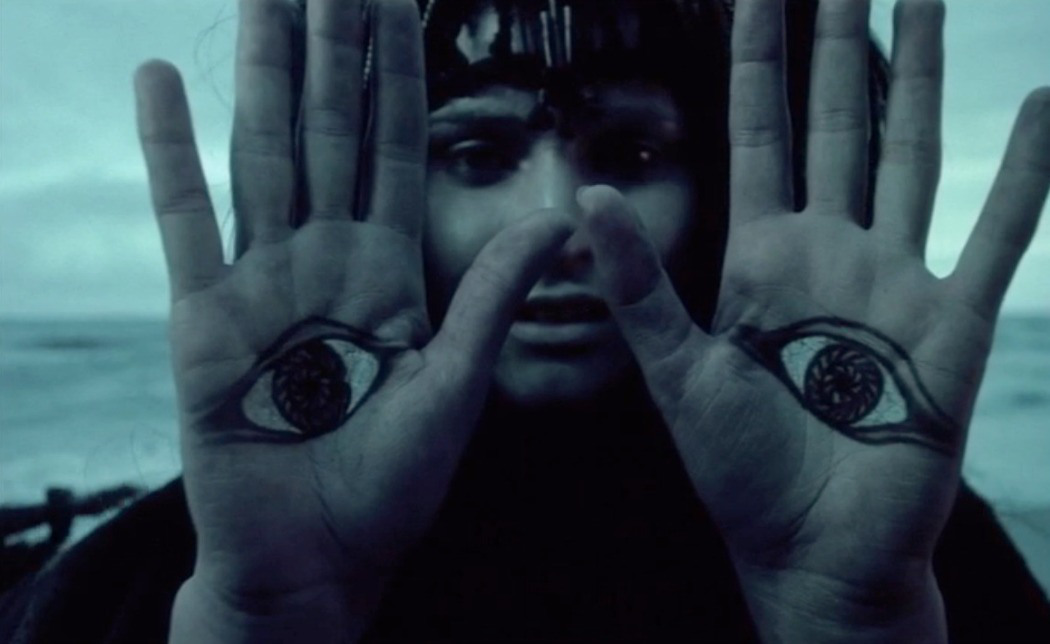6. Under the Skin (2013)

Under the Skin is an abstract Sci-Fi film about an alien that comes to Earth disguised as Scarlett Johansson to trick simple-minded horny men into her lair where they fall into a black void and become the victims of some mysterious alien system, but before long the disguised alien begins to take pity on humans and goes on a journey of self-discovery where she tries to find out where the boundaries between being human end and being alien begin.
Or is that just the surface level and she really is a human in the middle of an identity crisis or a mental breakdown?
It’s kind of hard to fully explain what exactly this film is, but it’s an engrossing and hypnotic experience that won’t let go once you enter it and will stay with you for a long time afterwards.
7. Film Socialisme (2010)

Film Socialisme is a film that is extremely hard to get into, both because it’s made in such a way that it looks like Godard wants nothing more than to alienate you, annoy you and confuse you. He breaks down every convention of cinema and rearranges them in a really messy and chaotic way that’s deliberately trying to piss you off and convince you it’s nothing more than the meaningless annoying misguided ramblings of an old man that has lost his touch a long time ago. It wants to bore you and get you to walk away shaking your head saying “well, that was a bunch of meaningless drivel, how did we go from Breathless to this?”.
It’s wilfully annoying and sometimes deliberately unwatchable, and sometimes while watching it you may begin to suspect that there really is no greater, deeper meaning and that Godard is just trolling you, and that might very well be true. But the film is also a unique and endlessly interesting experiment in cinematic deconstruction, but what it rebuilds out of that deconstruction can sometimes be really unclear and you’ll have to really work for it to get anything out of it.
There are many interesting ideas here that will give you a lot to think about, but to find out which ones have actual deeper meanings and which ones are just humorous intellectual wet farts put in there for Godard’s own amusement can be a lot harder to decipher.
The film has been described as a symphony in three parts, so to begin with we’ll be examining all three parts independently and try to figure out what they are all about.
The first part is a fragmented look at eccentric rich people getting bored on a cruise ship and rambling on in misguided intellectual excess that goes nowhere & means nothing. It’s about the hollowness of pure speculation, where a person contemplates the huge issues facing the world but ultimately does nothing because he’s too busy thinking.
Either that or Godard is just trolling us with a bunch of stuff he filmed while on vacation spliced together with satirical scenes he made up on the spot without much thought and then decided to have fun with it in the editing room to experiment with the medium of film in a more head-on and excessive way than he had done before. Either way, it’s really weird, meandering, kind-of pretentious at times but always interesting because of its weirdly engaging experimentation, it really pushes digital filmmaking to its limits to show what works and what doesn’t.
This part is also not really telling a story, but showing us the gaps between actions in a story, the boring aimless waiting where the story is forcibly stopped and stands still while characters move from one place to the next. If Godard had directed Indiana Jones the whole movie would have taken place in the airplane after he accepts his mission and before he gets to the place where the mission takes place. Goddard is focusing in on a part that we all accept as big parts of normal life but is almost always cut out of movies or just completely ignored because it would just take up too much screen time and grind the story to a halt.
Looking at this part in that way we realize that Godard is actually telling multiple stories at the same time, but we’re only seeing fragments from the parts where those stories stand still, motionless with nothing to do but still always slowly moving forwards, to the place where they can finally pick up the pace and begin again.
This film can kind of be summed up with the line “So, are you going to do anything”, a line that is said about 30 minutes into the movie and can be read as a call to action for all the meandering intellectuals to get out of their heads and actually go do something that has some effect on the world around them. But it can also be read as a humorous jab at the impatient audience members who are getting really annoyed at the films aimless and meandering nature. It’s almost like Godard knows most people outside the arthouse circuit would absolutely hate this film, and hate it mostly for being “boring” and for “nothing happening”.
The second part is about the absurdity and ineffectiveness of politics. “Ideas divide us, dreams may bring us closer together”, the father says at one point and it basically sums up the theme this part, we may dream of a brighter future, but our bickering over our specific ideas of how that bright future should look or come about will divide us and ultimately ruin the dream. The family is also just as incompetent at running a gas station as the Llama is, proving that even though they might talk and dream about a better future, they and their own incompetence is what stands in their way.
Each member of the family is also probably a metaphor for a political idea (The boy = Communism (he is wearing a T-shirt with the Soviet Union Hammer & Sickle sign on it at one point), The Girl = maybe an anarchist or a freedom fighter, The Dad = possibly capitalism (he says “there is no love left between us” to The Boy, might be a clue, but I’m not sure), The Mom = she doesn’t get enough screen time so I’m not sure but she might either represent the people torn between these ideas or a left wing Liberal, but again, not sure) they want to live together is peace and love but are so fundamentally apposed in believes that the only thing they can do is argue, and the more they argue the more they reveal the absurdity of their beliefs and how unfit to rule they really are. But still they argue and end up going nowhere, because no matter how hard they argue for their cause, their approach is just too ineffective to work and only provides a deeper divide between them.
So as a whole the family represents a nation that could become a great paradise (a utopia even) that is ultimately fragmented by constant bickering and petty argument over opposing politics where neither speaker wants to budge and are thus stuck forever in a competition of who can scream the loudest for attention while never actually achieving anything.
The third part is an interrogation of Europe, it’s people, it’s politics, it’s faiths and its history, there isn’t really much to say about this part. It’s the most obvious of the three in terms of meaning. It’s basically a montage that proves that all nations have blood on their hands when it comes to war, that we all have histories we’d rather forget, that things like religion and political ideas have always been used as tools to help unsavoury people rise to power and become war-mongering dictators.
Thus, boiling the film’s most basic political message down to war is always bad, politics can be and have been used to gain power, and most of the time the evil deeds those dictators brought with them could have been prevented had the intellectuals and politicians gotten their heads out of their ass and done something instead of just thinking about doing something and then actually do it instead of bickering about how to do it. Which is actually a pretty solid message, but one that has only come to light after a deep dive into this film, and even then the film as a whole is so fragmented and messy that this message could very well be accidental and not what Godard intended.
This film can be a really hard nut to crack, there is a lot there and repeat viewings do come in handy in revealing some of it. But there is always the question of whether what you are seeing out of the fragments presented is something that Godard intentionally put in there or if you’re just barking at the wrong tree and seeing things that aren’t there by misinterpreting something and then reading deeper into your misinterpretation, finding a whole world of possible meanings, all of them interesting but maybe none of them intentional.
Because the film never plays its hand, it never fully reveals what it’s trying to say or what any of it means (which explains the “No Comment” at the end), some of it may seem really obvious but then there are other moments so vague that you keep second guessing yourself: is that really what Godard was trying to say with that scene?
Then there is the aspect of what parts of it have real intentional meaning and what parts are just dick-ish trolling on Godard’s part. is it all serious? is it all farce? is it all absolutely meaningless or is there some deeper meaning hidden under these many layers of annoyance and experimentation? and if so, then how far and how hard do we have to dig before we hit gold?
This film is beyond explanation not only because of its bold and unique experimental nature, but because even after a few viewings you can’t competently say that you fully understand everything that Godard is saying. Because it’s just too fragmented and messy and vague to be fully put together into one statement that perfectly sums up and explains this movie, and because of that your opinion will most likely fluctuate frequently between thinking it might be some kind of grand masterpiece and just a load of bullshit throughout the entire runtime of the film.
When asked to provide English subtitles for his film, Godard instead handed in Navajo subtitles, and not only was this a great example of the dick-ish troll side of his personality but also explains that maybe he doesn’t want people to understand the movie.
Because even with subtitles you will still be nowhere near understanding it on your first few viewings, and then there is the argument that he didn’t want English speaking audiences understanding the dialogue because the dialogue doesn’t really matter and it was all just about his experimentation with digital filmmaking all along. Which would make the whole political interpretation of this film either absolutely null and void, or completely accidental.
8. Naked Lunch (1991)

Naked Lunch is a weird mix of a biopic and an adaptation, it perfectly captures the spirit of William S. Burroughs and creates a unique atmosphere where everything makes both perfect sense and no sense at all.
We might try to understand it, but there will always be gaps, and in the end, it might just be best to listen to the movie and “Exterminate all rational thought”.
9. Knight of Cups (2015)

Knight of Cups is about a Hollywood screenwriter who faces an existential crisis, he has been engulfed in a culture built on hollowness and fakery, as his life becomes more and more fragmented, he desperately tries to search for meaning by entering many short-lived affairs with women he hopes will complete him but is only left with disappointment as the sparks of love slowly fade away and normal life settles back in.
The film is a visual poem about our eternal search for meaning and how we can lose ourselves in the endless bombarding stream of life. The film is the last in a sort-of autobiographical Trilogy, the first part being The Tree of Life which is inspired by Terrence Malick’s childhood, the second part being To The Wonder which is inspired by events in his life that took place in the 20 years between Days of Heaven and The Thin Red Line, and Knight of Cups which is inspired by his time in Hollywood as a screenwriter.
Terrence Malick has always been known for being secretive about his personal life, so it’s rather interesting that he has now made three films where he invites us into the most personal corners of his life, showing us his evolution from childhood to the artist he has become today, and it’s also interesting that the more he reveals himself the less most people seem to like his movies.
Knight of Cups may be one of Malick’s best works, it almost tops The Thin Red Line and is easily the best of the Trilogy. The other two are great but Knight of Cups is something special, an extremely personal visual poem that’s almost like a modern version of The Mirror, both in form and in power, and just like with The Mirror, the feeling you get watching Knight of Cups is indescribable.
10. On the Silver Globe (1988)

On the Silver Globe is an unfinished film, the production was stopped with 35% of the film left unfilmed because the Polish government felt the film presented anti-totalitarian themes which might reflect badly on the totalitarian government if the film had been released.
The film was to be destroyed but was saved by the people who worked on it and ten years after its production ended, director Andrzej Zulawski edited together the surviving footage into a 157-minute long Sci-Fi epic, and to fill up the missing parts he incorporated shots from the streets of Poland with narration explaining to the audience what was supposed to happen in the unfilmed parts.
The story of the film is absolutely great, three astronauts go to a new planet, accidentally start a new race of man-like beings and then die of old age, few years later another astronaut comes to see what went wrong with the previous mission and is heralded as a messiah by the new race.
It’s a great story, but seeing it in its unfinished form makes it almost incomprehensible. It’s obvious that even if they had filmed everything that this would have been a highly complex three-hour long epic that would have left many confused as to what happened, but with important plot stuff missing the story becomes a practically impenetrable mess that sometimes feels like the incomprehensible ravings of a madman.
There are many long scenes of people talking to each other about philosophical ideas and those scenes are pretty much unexplainable on purpose, even if it was in a finished state those scenes would be baffling and leave everyone confused. You will probably have no idea what they are talking about, how anything fits together or even what is happening most of the time. It’s a film where you get so lost in it that you’ll feel like you’re going insane.
It’s not really until you’re done watching the film and can reflect on what happened that you can slowly decipher what happened, what the story was, what themes they were playing with and even what your opinion of the film is. Because while the film is playing it is so aggressively insane that you won’t make head or tails of it. It’s the kind of film that comes after you running, tackles you to the ground and keeps you there while it screams gibberish at you. It’s scary, intense, confusing, really long and an absolute masterpiece.
It’s such an insanely weird and overwhelming experience that it’s by no means easy to watch, it’s kind of an endurance test: how much batshit insanity can you handle in one sitting?
It’s the kind of film that’s best to watch with at least two intervals, because watching it all in one sitting is a bad idea. It’s so insane and throwing crazy stuff at you so regularly that you will feel absolutely exhausted afterwards. Watching all 157-minutes of this film in one sitting will most likely leave you with something resembling a hangover.
But even with all those warnings, it’s also an experience so unique that everyone should give it a try at least once, it will most likely leave many people utterly confused but this is the kind of film that is best to sit with for a few days afterwards and let your mind mellow out to fully comprehend the sheer insanity held within this film. And even though you can in the end understand what was happening on a story level, and maybe even on a thematic level, this film is just so batshit crazy that it’s absolutely beyond explanation.